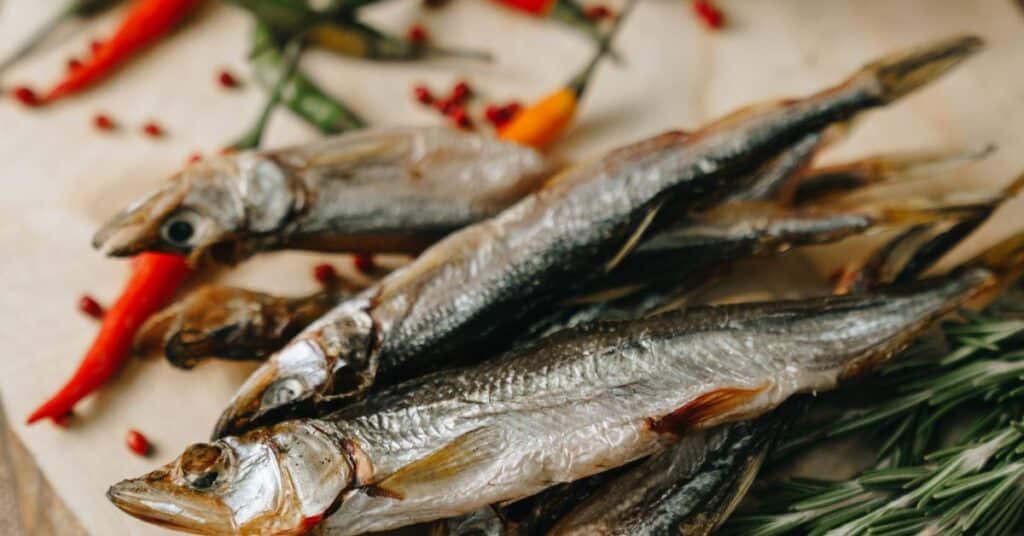What is the Mediterranean diet?
The Mediterranean diet is less like a diet and more like a lifestyle, commonly seen in Italy, Spain, France, Greece, and nearby areas.
The diet part of the Mediterranean diet includes a heavy emphasis on fruits and vegetables, whole grains, fish, olives, and herbs and spices.
While other animal proteins, desserts, and dairy are allowed to be eaten on the Mediterranean Diet, they are not as commonly part of the daily diet when compared to the Standard American Diet (SAD).

Key principles of the Mediterranean diet
Like I mentioned previously, the Mediterranean Diet pivots around fresh, whole foods. The bulk of the diet consists of whole grains, legumes, fruit, vegetables, healthy fats and herbs and spices. While the diet is not wholly plant-based, there is an especially high consumption of fruits and vegetables. Fish and seafood, particularly omega-3-rich fish, is a staple of the diet, alongside other healthy fats like nuts, seeds and olive oil. Poultry is also consumed, but red meats and most dairy products are very limited. Desserts are to be enjoyed, but are not over-indulged.

The most interesting thing about this diet is that lifestyle is an important factor. Those who follow the Mediterranean diet, whether by location or choice, choose to partake in regular moderate exercise, as well as daily meal times shared with family and friends.
To recap, the key components of the Mediterranean diet include:
- Emphasis on fresh, whole foods
- High consumption of fruits and vegetables
- Importance of olive oil as a primary source of fat
- Lean protein sources, such as fish and poultry
- Whole grains as a staple
- Moderate consumption of dairy products, especially yogurt and cheese
- Limited intake of red meat and sweets
- Regular physical activity as a component

What foods are not allowed on the Mediterranean diet?
Since the Mediterranean diet is considered more of a lifestyle with dietary guidelines, you don’t need to follow a strict set of rules. Instead, think of it as foods that are commonly avoided.
Foods that don’t fit into the Mediterranean diet include:
- Red and highly processed meats
- Desserts and highly processed sugary foods
- Non-whole grains, like white bread and even white flour
- Dairy products, like milk, cheese, yogurt, and butter
- Refined, processed, or hydrogenated oils like vegetable or canola oil
Mediterranean diet benefits
The Mediterranean diet provides anti-inflammatory and antioxidant benefits to those who follow it. But that’s not all. As I talked about in a previous blog, “Research dating back to 1940 reports multiple health benefits including a reduced risk of stroke, heart disease, cancer, Parkinson, Alzheimer and metabolic syndrome. Over the years, researchers have noted that it also impacts gut microbiota, fertility and mental health including depression.”

Cardiovascular health benefits
Olive oil is a staple of the Mediterranean diet. Olive oil is considered a monounsaturated fat, often called a “healthy fat”. According to the American Heart Association, “Monounsaturated fats can help reduce bad cholesterol levels in your blood, which can lower your risk of heart disease and stroke. They also provide nutrients to help develop and maintain your body’s cells.”
Another staple of the Mediterranean diet are high-in-omega-3, fatty fish, like sardines, salmon and anchovies. Consumption of omega-3 fatty acids has a lot of benefits, but regarding cardiovascular disease, it can reduce risk of heart disease and stroke.
According to Healthline, “Decades ago, researchers observed that fish-eating communities had very low rates of [heart disease]. This was later linked to omega-3 consumption.”
Reduced risk of chronic diseases, including diabetes and certain cancers
Fruits, vegetables, and olive oil in the Mediterranean diet are rich in antioxidants. These compounds help neutralize free radicals in the body, potentially reducing the risk of cancer.
Furthermore, reducing the intake of red and processed meats, as suggested by the Mediterranean diet, has been associated with a lower risk of certain cancers, particularly colorectal cancer.
Inflammation reduction
The diet’s emphasis on foods with anti-inflammatory properties, such as fatty fish, nuts, and olive oil, may contribute to lower levels of chronic inflammation. Chronic inflammation is linked to various diseases, including heart disease, diabetes, and certain cancers.

Potential cognitive benefits
Omega-3 fatty acids, found in abundance in fish, have been associated with cognitive function and a reduced risk of neurodegenerative diseases like Alzheimer’s. Plus, The antioxidants in fruits and vegetables may play a role in protecting brain cells from damage, potentially reducing the risk of cognitive decline.
Autoimmune disorder benefits
While there is still research being done on the positive effects of adhering to the Mediterranean diet for those with autoimmune diseases, there has been beneficial results from studies on those with lupus. In this study, patients showed a significant inverse relationship between the Mediterranean diet and disease activity.
In conclusion
We covered what is Mediterranean diet, what foods and activities are included in the Mediterranean diet, what foods are not allowed in the Mediterranean diet and what health benefits there are from adhering to the mediterranean diet. The Mediterranean diet benefits many aspects of our health – from inflammation reduction to brain health to improving autoimmune conditions.
For further reading, including my food staples list for the Mediterranean diet, read this article.

